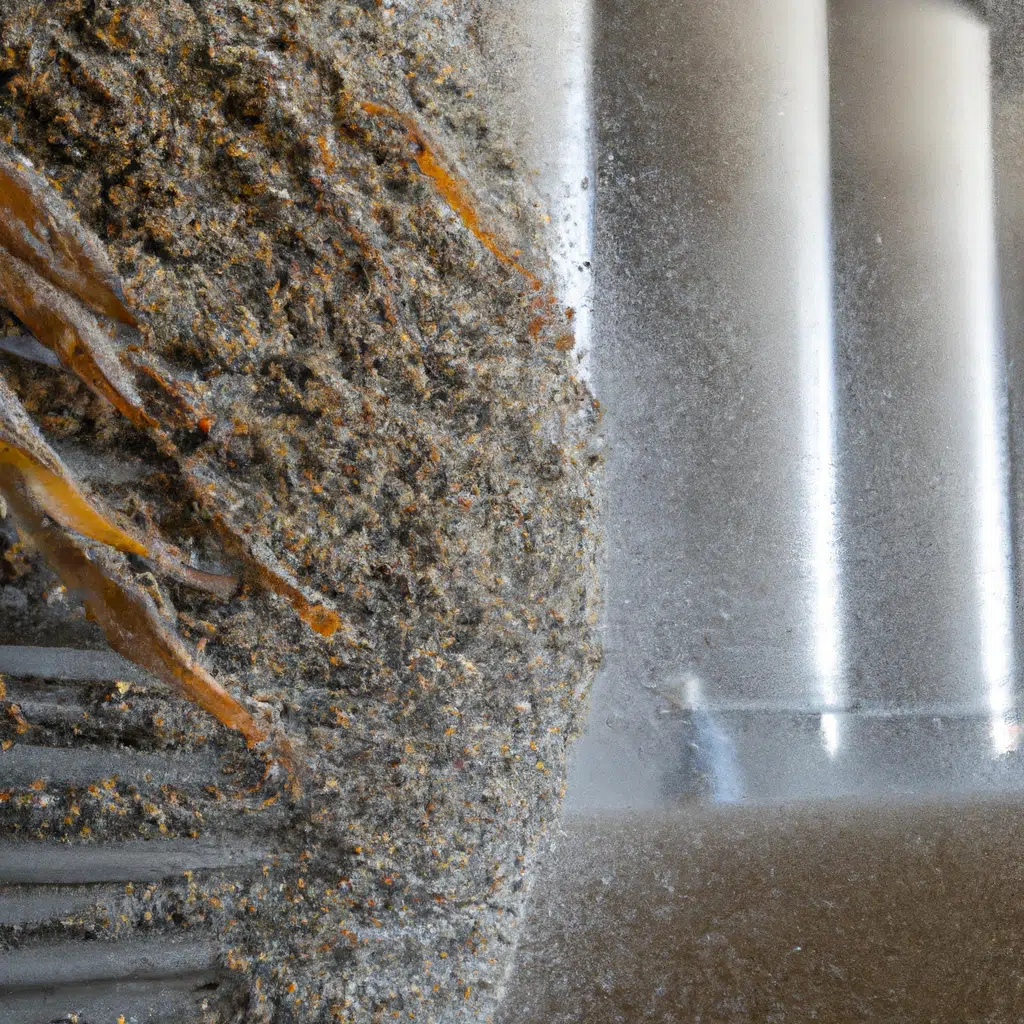
Mold is a common problem that affects many crops, including silo-dried grains. Mold can cause serious damage to your crop and can even lead to significant financial losses. In this article, we will explore the hidden dangers of mold in silo-dried grains and provide you with valuable information on how to protect your crop and your profits.
Understanding the Risks of Mold in Silo-Dried Grains
Silo-dried grains are particularly vulnerable to mold infestations because of the high moisture content of the grain. Mold thrives in warm, moist environments, making silos the perfect breeding ground for mold spores. If left untreated, mold can quickly spread throughout the grain, contaminating the entire batch.
One of the biggest risks associated with mold in silo-dried grains is mycotoxin contamination. Mycotoxins are toxic substances produced by certain types of mold that can cause severe illness in both humans and animals. Mycotoxin contamination can also render the grain useless for human or animal consumption, resulting in significant financial losses for farmers.
Identifying Mold in Silo-Dried Grains
Identifying mold in silo-dried grains can be challenging, as mold often grows deep within the grain and is not visible to the naked eye. However, there are some signs that you can look out for, including:
- Musty or sour odors
- Discoloration of the grain
- Presence of visible mold on the surface of the grain
- Poor quality of the grain
If you suspect that your silo-dried grains are contaminated with mold, it is essential to take immediate action to prevent the spread of the mold and minimize the risk of mycotoxin contamination.
Preventing Mold in Silo-Dried Grains
Preventing mold in silo-dried grains requires a multi-faceted approach that includes proper storage and handling of the grain, regular monitoring for mold growth, and prompt treatment of any mold infestations.
Some of the key steps you can take to prevent mold in silo-dried grains include:
- Properly cleaning and drying the grain before storage
- Ensuring that the silo is clean and dry before filling it with grain
- Using a grain preservative to prevent mold growth
- Properly aerating the grain to reduce moisture levels
- Regularly inspecting the grain for signs of mold growth
- Promptly treating any mold infestations with an appropriate fungicide
By following these steps, you can significantly reduce the risk of mold infestations in your silo-dried grains and protect your crop and your profits.
Treating Mold in Silo-Dried Grains
If you do discover mold in your silo-dried grains, it is essential to take immediate action to prevent the spread of the mold and minimize the risk of mycotoxin contamination.
The first step in treating mold in silo-dried grains is to identify the type of mold involved and determine the extent of the infestation. This can be done through laboratory analysis of the grain.
Once you have identified the type of mold, you can then select an appropriate fungicide to treat the infestation. It is essential to follow the manufacturer’s instructions carefully when using fungicides to ensure that they are used safely and effectively.
In some cases, it may be necessary to dispose of the contaminated grain to prevent the spread of the mold and minimize the risk of mycotoxin contamination. While this can be a costly solution, it is essential to prioritize the safety of human and animal consumers.
Conclusion
Mold is a significant threat to the quality and safety of silo-dried grains. By understanding the risks associated with mold infestations and taking proactive steps to prevent and treat mold growth, farmers can protect their crops and their profits. Regular monitoring and maintenance of silos and grain storage facilities is essential to ensure that mold growth is detected and treated promptly. By prioritizing the safety and quality of their crops, farmers can ensure the long-term success of their businesses.

